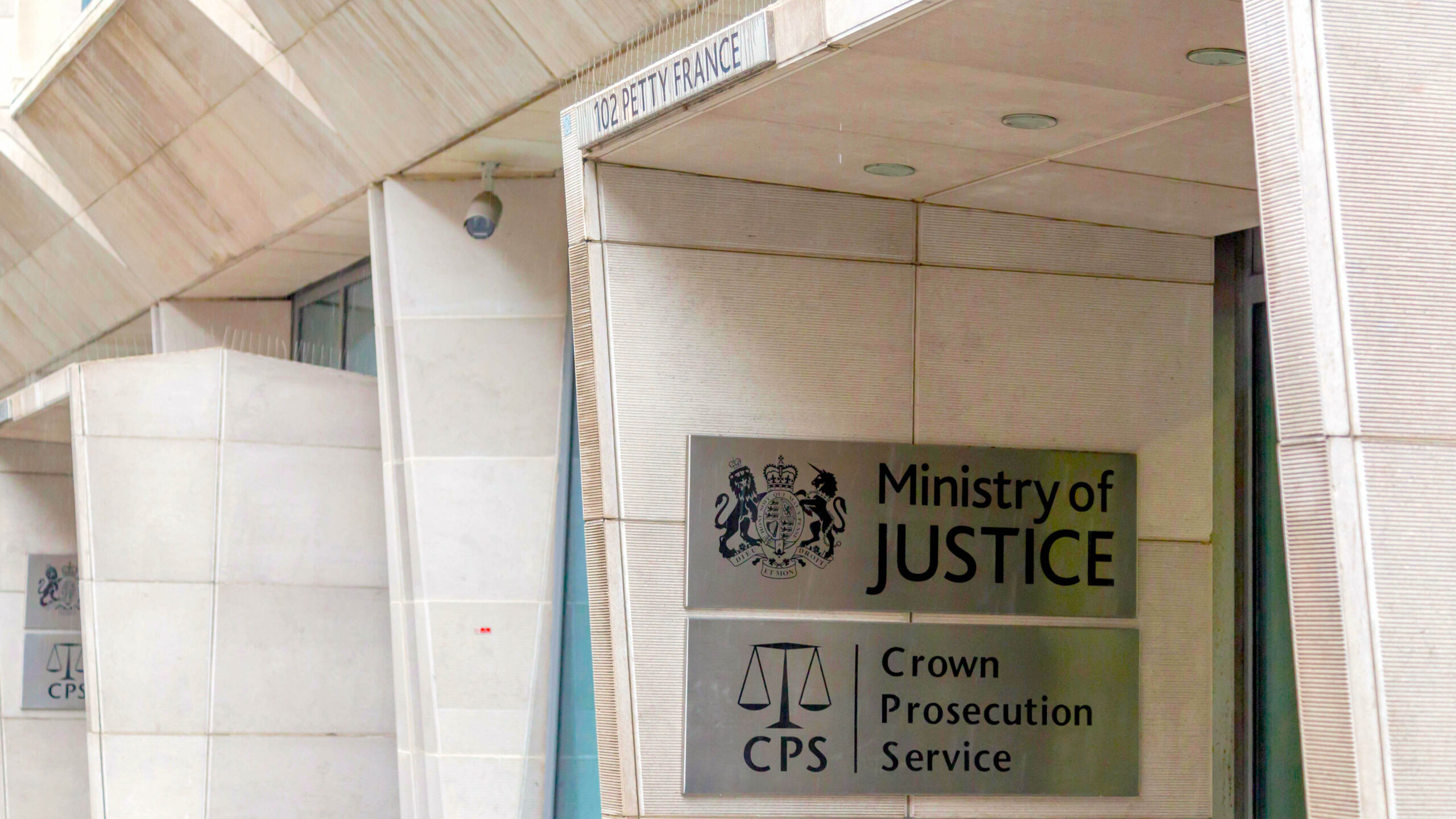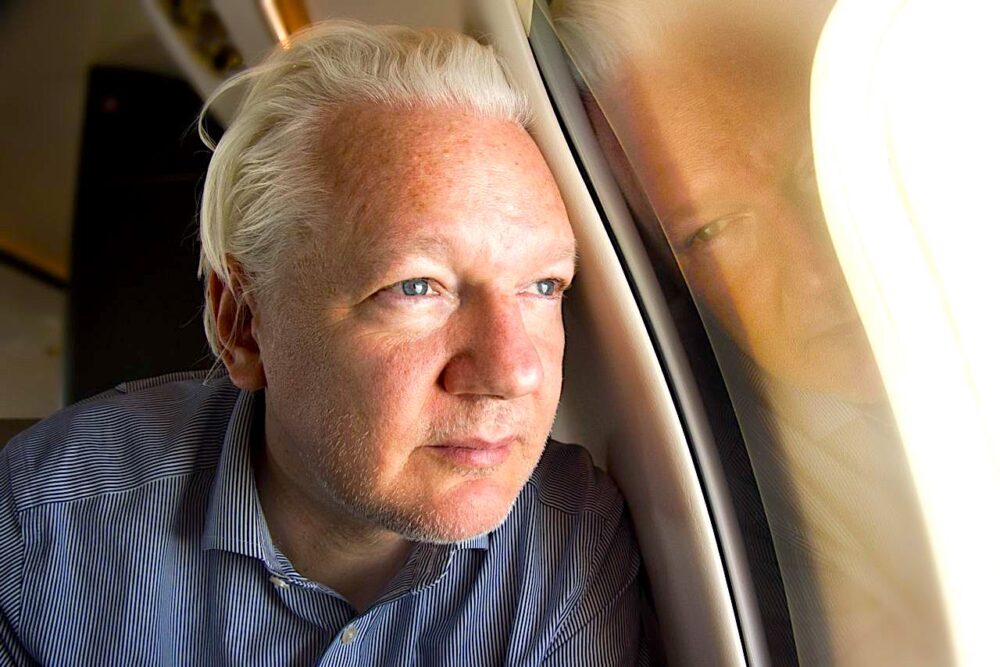A judge in London has ruled that Britain’s Crown Prosecution Service (CPS) must explain what happened to certain documents in the Julian Assange case that it claims no longer exist, reports Joe Lauria.
By Joe Lauria
Special to Consortium News
Italian journalist Stefania Maurizi has been waging a legal battle for seven years against the Crown Prosecution Service to discover the truth about a CPS claim that it deleted a number of documents Maurizi has sought in a Freedom of Information request about the case of Julian Assange.
Now a judge on the London First-tier Tribunal has ruled that the CPS must explain to Maurizi what it knows about when, why and how the documents were allegedly destroyed. The Jan. 2 ruling was first reported by Maurizi’s newspaper il Fatto Quotidiano on Friday.
Judge Penrose Foss has given the CPS until Feb. 21 to respond or it could be held in contempt of court.
The ruling says:
“The Crown Prosecution Service must, by no later than 4.00 p.m. on 21 February 2025:
- (1) Confirm to the Appellant whether it held recorded information as to when, how and why any hard or electronic copies of emails referred to in the Appellant’s request to the Crown Prosecution Service of 12 December 2019 were deleted;
(2) If it did hold such information, either supply the information to the Appellant by 4.00 p.m. on 21 February 2025 or serve a refusal notice under section 17 of the Freedom of Information Act 2000, identifying the grounds on which the Crown Prosecution Service relies.
A failure to comply with this Substituted Decision Notice could lead to contempt proceedings.”
Swedish Case
The documents Maurizi seeks were in relation to Sweden’s request to the U.K. for Assange’s extradition.
Her argument was heard before the three judges of the tribunal on Sept. 24, 2024. The allegedly deleted emails involved a CPS exchange with Sweden about a Swedish prosecutor’s attempt, beginning in 2010, to extradite the WikiLeaks publisher from Britain.
Assange was wanted at the time in Sweden for questioning during a preliminary investigation into allegations of sexual assault, which was dropped three times, definitively in 2017. He was never charged.
After losing his battle against extradition to Sweden at the U.K. Supreme Court, Assange took refuge in the Ecuadorian embassy in June 2012, fearing that Sweden would send him to the United States.
Assange spent seven years in the embassy protecting himself from arrest until April 2019, when British police dragged him from the diplomatic mission and threw him into London’s maximum security Belmarsh prison.
It was only when the U.S. realized it would lose on appeal after a four-year extradition battle that the Department of Justice cut a plea deal with Assange who was released on June 24, 2024 and returned to his native Australia.
Assange had been charged in the United States under the Espionage Act for possessing and publishing defense information, which revealed evidence of U.S. war crimes. Britain took an active role in Assange’s prosecution.
In the earlier Swedish case, the CPS sought to stop Sweden from going to the embassy to question him.

Stefania Maurizi. (X/Twitter)
Seeking to learn more about Britain’s role, Maurizi first made a Freedom of Information Act (FOIA) request in 2015 for all emails between the British and Swedish governments concerning Assange.
She also sought emails between the CPS and Swedish, American and Ecuadorian authorities.
“UK CPS has always refused to confirm or deny whether it holds correspondence with US and Ecuador, until 2023, when Judge [Mark] O’Connor confirmed CPS holds correspondence with US and ruled that it should NOT be released to me,” Maurizi said in a message to Consortium News.
Some of the emails she did obtain showed political motivation on the part of the lead British prosecutor, Paul Close.
One email Maurizi obtained from the Swedish Prosecution Authority (SPA) revealed that Close appeared to be pressuring Swedish prosecutors to continue seeking Assange’s extradition instead of dropping the case or questioning him at the Ecuadorian embassy, where Assange had been granted asylum.
“Please do not think this case is being dealt with as just another extradition,” Close wrote to the SPA in January 2011, according to one of the emails obtained by Maurizi.
In another email later that month, Close wrote, “My earlier advice remains, that in my view it would not be prudent for the Swedish authorities to try to interview the defendant [Julian Assange] in the UK.”
“Don’t you dare get cold feet!!!,” a CPS official wrote to Marianne Ny, Sweden’s director of public prosecutions, in August 2012.
Keir Starmer, the British prime minister, was head of the CPS at this time. He led the service from 2008 to 2013, though it is unknown what role Starmer may have played in this correspondence.
In June 2023, Declassified UK reported that the CPS destroyed the records of four trips to Washington made by CPS head Starmer, three of which occurred while the Assange case was active.
After Maurizi noticed a sizeable gap in the emails released to her she filed another FIOA seeking to obtain the missing emails.
The CPS first claimed that it had destroyed the emails. It said that when Close retired, his account along with his emails, were automatically destroyed.
But Maurizi did not buy it. She asked the court at the hearing last month to order the CPS to turn over “metadata” — data about data, such as file creation and modification dates, email sender and recipient addresses, timestamps, email routing information, keywords, and subject lines — proving the emails really were deleted and when.
“We have NO certainty whatsoever” that the emails were destroyed, Maurizi wrote in a message to Consortium News. Maurizi went to court because she believes the allegedly deleted emails could provide additional evidence of a politically motivated prosecution of Assange.
She also wants metadata on a CPS document that it says is from 2012 explaining the CPS’ email deletion policy, which was only sent to her in 2023.
The supposed 2012 policy document says that 30 days after an email account is disabled, the “email data” associated with it “will be automatically deleted and no longer accessible.”
“How is it possible that they provided this document only in 2023, after multiple requests, multiple appeals, no-one ever mentioned it or knew about it?” Maurizi told CN.
Such a policy does not explain why thousands of emails related to an ongoing case would be deleted.
Denied on the Metadata
In order to figure out whether the 2012 policy document on deletions is genuine, Maurizi requested the relevant metadata of the file. She wanted to make sure it was not created years later as an attempt at retroactively justifying the deletion of Close’s emails.
Judge Foss for the Tribunal, however, ruled against Maurizi on the release of the metadata. Foss ruled:
“In our view there was nothing in the letter or spirit of the 2019 Request as to when, how and why the emails of the CPS lawyer were deleted, which required the CPS to disclose the metadata of any document which substantiated the information it provided in response to that request. […]
It would be extraordinary, in our view, if every time a public authority was presented with a request for information recorded in such a way as to have meant that the creation of that record generated metadata, the request should be taken inevitably to require the metadata behind the form of record.”
Unsatisfactory Explanations

(David Pearson, CC BY-SA 2.0, Wikimedia Commons)
It is simply “not credible” Maurizi’s lawyer argued during the September hearing that Close neither sent nor received emails to Swedish prosecutors when Sweden issued the arrest warrant for Assange; when Assange took refuge in the embassy; and when he was granted asylum by Ecuador.
“[I]t has never been established that there was anything untoward in those gaps, that there were emails that weren’t published,” argued Rory Dunlop KC, on behalf of the prosecution authority, during his closing remarks.
“The CPS are keen to make clear that it has never been accepted and [it has] never been established one way or another,” he insisted. Over the years, in response to FOIA requests and appeals, the CPS’ position on the deletion of Close’s account has varied.
For example, in 2017, after Maurizi challenged the gap in the emails, a CPS employee said in a witness statement that, “If there ever existed further emails they were not printed off and filed” and therefore “are no longer in the possession of the CPS.”
According to an article by Maurizi in il Fatto Quotidiano, five years later, the CPS said in response to a separate FOIA request from Labour MP John McDonnell that “deletion of an email account of a former member of staff at the time would not have led to the deletion of emails held on the case file.”
The CPS also admitted to McDonnell that they are only aware of one other case in the last decade which resulted in the premature destruction of case materials, according to Maurizi’s article.
The Sept. 24 tribunal also heard that the CPS’ Records Management Manual states that general correspondence “should be retained in the case file within five years from the date of the most recent correspondence,” which would not allow for deletion upon retirement by the prosecutor on the case.
Mohamed Elmaazi contributed to this article.
CORRECTION: An earlier version of this article attributed the specific quote, “Don’t you dare get cold feet!!!,” to Paul Close. In fact the sender in that email was redacted in the document released to Maurizi.
Joe Lauria is editor-in-chief of Consortium News and a former 25-year U.N. correspondent for The Wall Street Journal, Boston Globe, and other newspapers, including The Montreal Gazette, the London Daily Mail and The Star of Johannesburg. He was an investigative reporter for the Sunday Times of London, a financial reporter for Bloomberg News and began his professional work as a 19-year old stringer for The New York Times. He is the author of two books, A Political Odyssey, with Sen. Mike Gravel, foreword by Daniel Ellsberg; and How I Lost By Hillary Clinton, foreword by Julian Assange.
Please Support CN’s
Winter Fund Drive!![]()
Make a tax-deductible donation securely by credit card or check by clicking the red button:




“only aware of one other case in the last decade which resulted in the premature destruction of case materials”
It might have been interesting to ask what case that was? I presume it was another blatant cover-up?
And yes, given the sort of backup systems that any IT professional would have had in place during the 2010’s, those emails should still exist, somewhere. If they don’t, that only means that a determined effort to remove all traces from multiple sources and backups has been thoroughly accomplished.
2 further questions. When did Sir Starmer run the CPS? And, isn’t it unusual for an opposition leader to be knighted (ie, the ‘Sir’), long before he became Prime Minister? Exactly what services to the Crown did Sir Starmer perform to get that Sir?
The shielding and cover up of Jimmy Saville, for one thing.
I am sure that I read somewhere that ‘deleted’ emails are not truly deleted. They are sitting on a server somewhere out there in the ‘cloud ‘. It just needs an expert with the knowledge and patience to recover them or a least in part?
What I’m waiting for is the connection between the billionaire Adelson’s involvement with the then Ecuadorian President Lenin Moreno. How much money was Moreno given to violate international law and hand over Assange to the UK so he could be dragged into Belmarsh and held against his will with no bail. Julian hadn’t even been charged with a crime.
Stefania is an excellent journalist who worked with Wikileaks insuring nothing was published that could harm any individuals. She also wrote a book about the Assange case which is ALL POLITICALLY MOTIVATED. There is nothing that isn’t politically motivated since Assange and Manning embarrassed the US military-industrial complex. Nobody is allowed to do that, yet Assange and Snowden did a fine job of it and paid a heavy price for it.
Even the Trump appointed Mike Pompeo, drew up plans to assassinate Assange in a mock gun fight in the streets of London. I am sure the CPS and Starmer made sure all the documents between the US/Sweden/London were destroyed, or at least the damaging documents. Starmer is a puppet of the US which tightly rules the UK via London’s uniparty.
Thank you for covering this effort by Stafania Maurizi to obtain the evidence of political motivations behind the prosecution of Assange. I just started reading her book “Secret Power”, Wikileaks and its Enemies. There is still a lot of information to uncover in this decades long persecution of Julian and Wikileaks. I truly hope the perps responsible are fully exposed for their outrageous attempt to silence real journalism and the willingness of the governments involved to violate their own laws.
I also agree with YesXorNo about Mr. Lauria’s continues, dogged coverage of the abuse of Julian Assange.
Thank you, Mr Lauria, for your continued, dogged coverage of the abuse of Assange and the coincident attack on free speech and journalism.